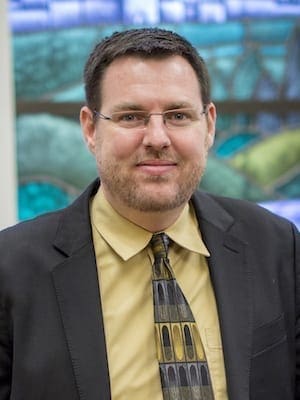Malala Yousafzai of Pakistan and Kailash Satyarthi of India were jointly awarded this year’s Nobel Peace Prize.
The Norwegian Nobel Committee recognized Yousafzai and Satyarthi “for their struggle against the suppression of children and young people and for the right of all children to education.”
In an Associated Press interview, Satyarthi noted, “Child slavery is a crime against humanity. Humanity itself is at stake here. A lot of work still remains, but I will see the end of child labor in my lifetime.”
Unfortunately, human trafficking and modern-day slavery remain all too prevalent in the world today with an estimated 29.8 million individuals trapped in bondage.
According to the Global Slavery Index, 76 percent of all slaves are found in 10 countries: India, China, Pakistan, Nigeria, Ethiopia, Russia, Thailand, Democratic Republic of Congo, Myanmar and Bangladesh. India alone is estimated to have 13.9 million slaves.
This sobering reality imperils families and communities and, according to Free the Slaves:
− $150 billion is paid to human traffickers each year
− 26 percent of victims are children under the age of 18
− 55 percent of victims are women and girls
− 78 percent of victims are in labor slavery
− 22 percent of victims are in sex slavery
A young woman named Seba was trafficked as a domestic house worker in Paris, France.
Her story is recorded by Kevin Bales in his provocatively titled book, “Disposable People: New Slavery in the Global Economy.”
“I slept on the floor in one of the children’s bedrooms; my food was their leftover. I was not allowed to take food from the refrigerator like the children. If I took food, she would beat me,” Seba recalled.
“She often beat me. She would slap me all the time. She beat me with the broom, with kitchen tools or whipped me with electric cable,” she added. “Sometimes I would bleed; I still have marks on my body.”
Though slavery can be found in 160 countries, far too often slaves remain little more than silent and suffering silhouettes in our communities.
Acts 16:16-40 contains a narrative about a young woman trapped in this reality. As the Scriptures record, this young woman, “a female slave who had a spirit by which she predicted the future,” earned “a great deal of money for her owners.”
As a slave, she did not profit from her work. Spiritually, she was enslaved. Physically, she was exploited by her owners.
The picture of this young woman is not of a quiet and tame woman calmly following behind, but rather someone who was speaking loudly.
It would be more appropriate to envision one wracked with convulsive movements, wild, disruptive cries, interrupting Paul and those on their way to worship. Sometimes the cries of our community must disrupt our worship.
How can individuals and churches practically respond to this pressing problem?
Those being trafficked are often transported along interstates and highways, and sometimes smugglers will stop at gas stations and other public restrooms for breaks.
Individuals, churches and civic groups could adopt a project to identify every public restroom in their area and ask to post a sign within each stall detailing how individuals currently being trafficked could receive immediate help.
The National Human Trafficking Resource Center (NHTRC) maintains a 24-hour confidential toll-free number as well as an email address available for tips and for immediate response to individuals reporting to be trapped.
The NHTRC recommends using their posters, which are available in 20 languages.
There are other steps that could be pursued in order to practically address the reality of modern-day slavery, such as praying with intentional consistency, providing local law enforcement officials with emergency hygiene kits distributable to rescued individuals, and offering financial support for organizations engaged in this area.
Slavery and human trafficking remains a sobering reality, but there are practical initiatives that individuals and churches can adopt in order to combat this pressing problem and create communities of refuge.
Let us follow in the footsteps of Jesus as he himself articulates his mission in Luke 4:18-19: “The spirit of the Lord is on me because he has anointed me to proclaim good news to the poor. He has sent me to proclaim freedom for the prisoners and recovery of sight for the blind, to set the oppressed free, to proclaim the year of the Lord’s favor.”
 Elijah Brown is the director of the Freedom Center and associate professor of missions at East Texas Baptist University (ETBU) in Marshall, Texas, where he also serves as a faculty in residence. A longer version of this article first appeared on The Intersection, the blog of ETBU’s Center for Christian Scholarship. It is used with permission. You can follow him on Twitter @ElijahMBrown and the Center @ETBUCECS.
Elijah Brown is the director of the Freedom Center and associate professor of missions at East Texas Baptist University (ETBU) in Marshall, Texas, where he also serves as a faculty in residence. A longer version of this article first appeared on The Intersection, the blog of ETBU’s Center for Christian Scholarship. It is used with permission. You can follow him on Twitter @ElijahMBrown and the Center @ETBUCECS.
Editor’s note: Christians around the world will observe Freedom Sunday on Oct. 19, 2014. More EthicsDaily.com resources on human trafficking are available here.
Elijah M. Brown is the general secretary of the Baptist World Alliance.

